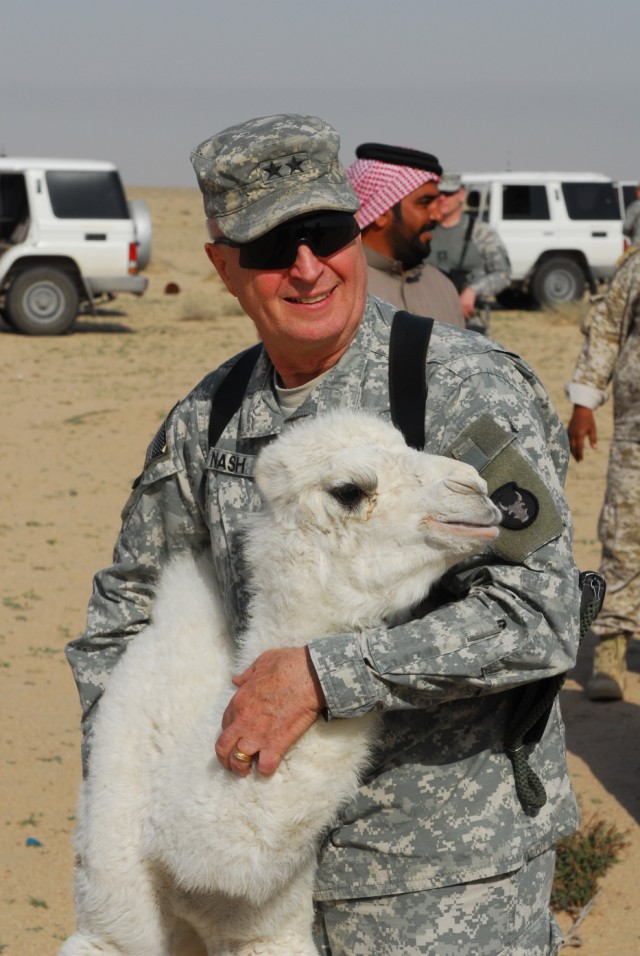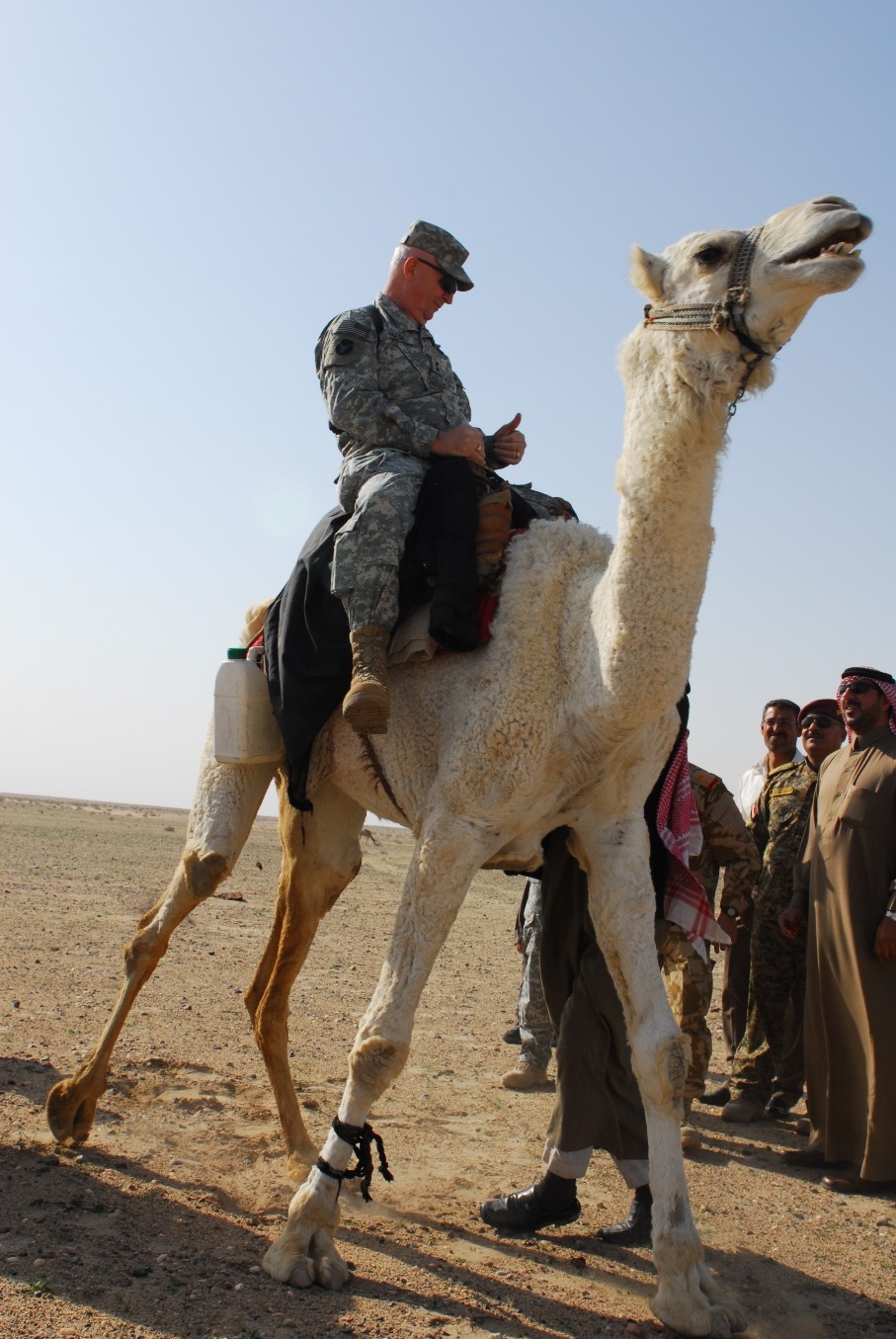COB BASRA, Iraq (Army News Service, Jan. 25, 2010) -- While sitting under a handmade tent, leaders of the U.S. and Iraqi Armies met near Basrah, Iraq, Jan. 14, with local Bedouin Shaykhs who call this desert home.
Maj. Gen. Rick Nash, U.S. Division-South commander, and Maj. Gen. Abdul Aziz Noor Swady al Dalmy, 14th Iraqi Army Division commander, were invited to the land of Shaykh Wabdan and the Sa'adoun tribe confederation to discuss issues affecting Wabdan's tribe, the area around Basrah and relations with the Iraqi Army.
After tea and introductions, Shaykh Wabdan started the discussions by stating how the security situation in Basrah has improved over the last few years.
Before Operation Charge of the Knights -- the Iraqi Army's mission to cleanse Basrah of militants, which began March of 2008 -- the Shaykh said the security situation was so bad that outlaws and armed people where always in the streets, and one could regularly expect to see terrorists.
"It was very dangerous going to Basrah. Every time, going to the city was an adventure; we would always take people as escort and force protection," Wabdan said through a translator. "Every person who was loyal to the country was a target."
Thanks to the efforts of the police, the security forces, and especially the Iraqi Army, that has all changed, he said.
"Thank God, after the Charge of the Knights, we gave all of our weapons to the Army because we didn't need them anymore," Wabdan said through a translator, speaking of his tribe. "The Army is very loyal to Iraq."
Aziz and Nash agreed that the security situation has changed for the better, and that all Iraqis play a role.
"Security and stability was not achieved only by guns. Our greatest support came from the people," Aziz said through a translator. "That was the main reason for our success."
With the improving security situation, Wabdan would like to increase his tribe's dealings with the American and Iraqi governments.
The large tracks of desert the tribe uses for grazing are mostly uninhabited and fall along Iraq's border. This creates the opportunity for the tribe to aid security forces as extra eyes along the border.
"They apply the same concept in Saudi Arabia and Jordan," Wabdan said through a translator.
The governments of those countries have helped tribes set up cities close to the border. In exchange for better access to wells, power and health care, tribes improve security by providing more bodies along the border, an arrangement benefiting both parties, Wabdan said.
The generals also took the opportunity to experience a taste of Bedouin lifestyle.
The Bedouin culture, while embracing many changes of the modern world, is very traditional and in some ways has been unchanged for centuries. The most striking example is large herds of camels shepherded across the desert in search of forage. Loyalty to the tribe and family is also important.
After a tour of the surrounding desert, with camel rides, a discussion on how deep a well must be to reach safe water and what work must be done to obtain food through the seasons, a traditional dinner of rice and lamb was served.
The Shaykh wanted to honor Nash and his visit and have a big crowd, but, at the advice of Aziz, he kept it to immediate family.
At a previous election party Wabdan held, he invited only first cousins. Over 4,000 people showed up and four 300-meter tents were needed to accommodate them. A big party would involve 10,000 people, Aziz said.
"I told him no way," he said.
When the generous servings of food were gone, Aziz wanted to thank the outgoing Nash, whose command of USD-S will soon be transferred to the 1st Infantry Division.
"I want you to have confidence that you left a legacy behind you that we will follow. We have learned from your professionalism," Aziz said. "You are leaving behind you people who are very loyal to Iraq."
Nash said his thanks and expressed his hope that the safety and security of Basrah will continue and, that now the economy can start to improve.
"It's about the next generation," he said. "As our mission finishes up here it is up to investors, businessmen and tourists to come to Iraq and to ensure that terrorists and criminals do not take over Iraq again."
The Shaykh also expressed his hopes for Iraq.
"The Iraqi people are a good people. Sectarian activity will never succeed in our country," he said through a translator. "Iraq is for Iraqis, not for terrorists or terrorism; they don't exist in our minds anymore."
"We hope the New Year will be a reconstruction year," he added, "not just for the land but for the spirit too."
(Staff Sgt. Chris Carney writes for HQ, USD-South public affairs)




Social Sharing